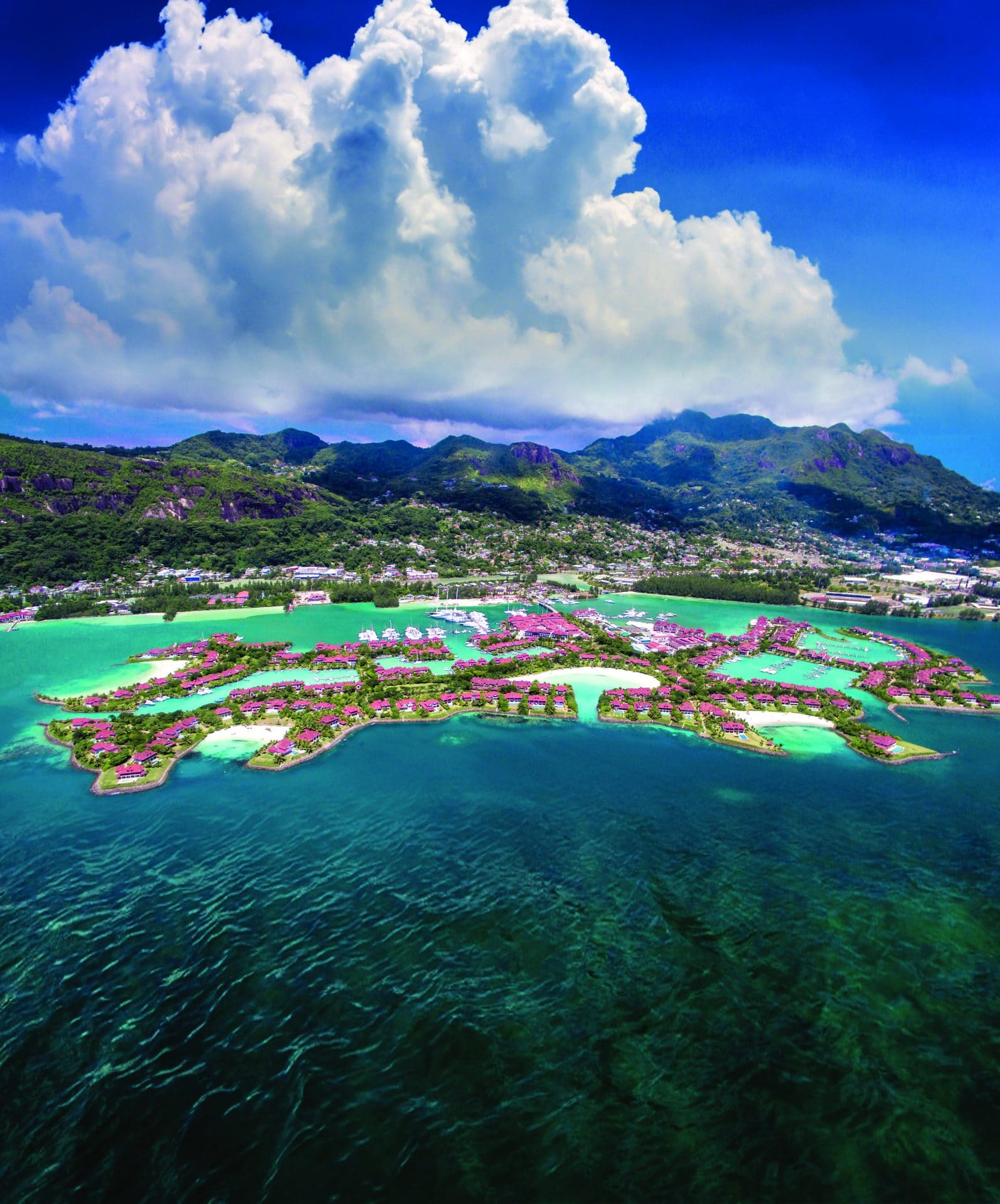“Our ocean is our most precious resource. We recognise not just its vast potential, but also the fragility of its ecosystems and the need to preserve it for future generations. The ocean is the beating blue heart of our planet.”
President Danny Faure
The Republic of Seychelles is endowed with extremely rich biodiversity both on land and in its oceans. After tourism, the fisheries sector employs 17% of the Seychelles population, making it the country’s most important industry. As a result, the country has become a pioneer in Blue Economy by recognising the immense importance of protecting earth’s greatest asset.
This year, President Danny Faure of Seychelles gave an opening speech at the Blue Economy conference in Mozambique. As a guest of honour, President Faure focused on the benefits and importance of the world’s nations coming together to achieve a collective and sustainable plan to conserve the ocean and protect the future of the earth. President Faure said, “Our ocean is our most precious resource. We recognise not just its vast potential, but also the fragility of its ecosystems and the need to preserve it for future generations. The ocean is the beating blue heart of our planet.” Currently, the Blue Economy is backed by 36 countries and growing.
Blue Economy is an economic initiative that focuses on best practices for business while ensuring that sectors promote safe and sustainable utilisation of ocean and marine resources. The result is economic growth, job creation and improved living conditions while simultaneously protecting the health of the ocean and all relative marine ecosystems. Blue Economy permeates every sector in Seychelles, creating an entire economy that is dedicated toward protecting the ocean. This isn’t just a relevant problem for an island country like Seychelles, this initiative has inspired countries all over the world to implement better practices that have positive effects for the environment. Amb. Barry J.J. Faure, Secretary of State of Foreign Affairs and of the Blue Economy, states, “Blue Economy is the key: not only for island states and coastal states but for states that have waterways.”
In their goal to conserve the environment, Seychelles has
introduced a new financial tool to raise capital from impact investors to finance
marine and ocean-based projects that have positive environmental, economic and
climate benefits: the blue bond. Vice President of Seychelles, Vincent Meriton,
says, “The blue bond is one of the world’s most innovative financial
instruments in recent years. The bond, which raised USD$15 million from
international investors, demonstrates the potential for countries to harness
capital markets for financing the Blue Economy.” The blue bond has helped the
Seychelles’ government save over USD$8 million in interest charges over the
next ten years. Meriton continues, “Mobilising private finance is a major
achievement, one that could be replicated in other African nations, allowing
them to protect their environment while restructuring and transforming their
economy.”
Blue Economy has an impact on
almost every sector: fisheries, agriculture, renewable and tidal energy,
pharmaceutical, petroleum and gas. In the tourism sector, maintenance of
Seychelles’ oceans and beautiful beaches helps the Seychelles Tourism Board
promote the country as a welcoming and exotic getaway for travellers.
Construction and infrastructure sectors are adhering to Blue Economy, as well,
where they implement eco-friendly practices in their projects. The financial
sector has a large hand in Blue Economy with the blue bond, but also in the
implementation of the Agriculture Development Fund, the Fisheries Development
Fund and the Green Climate Development Fund, which work further to conserve
these industries and ensure that they thrive. The message that these sectors
are sending is that even the smallest sustainable efforts have impacted the
country in a great way. As Johan Van Schalkwyk, Managing Director of Absa has
stated, “If we start creating opportunities for us to add more value from what
we reap in the ocean, it is an incredible thing for local ventures.” For
example, a local business that cleans seaweed from the beaches not only keeps
the shores pleasant for tourists but converts the collected seaweed into
fertiliser for the agriculture industry, impacting multiple sectors at once.
This is just one example of how dedication to Blue Economy can impact the
economy in a positive way.
In addition, Seychelles has become an ideal place for research, not only in the sense of exploring the ocean and its riches but as an experimental market. Telecom company Airtel is one such example, arriving in Seychelles for its first geographic expansion, implementing the country’s submarine cable project. The Seychelles East Africa Submarine (SEAS) cable project consisted in the establishment of the first submarine fibre optic cable for international connections from Seychelles to the African continent. After much success in this project, Airtel is now present in several African countries.
In a small country such as Seychelles, movements toward ocean conservation and sustainable development of sectors can have quick and positive results for the economy of the country. Seychelles continues to be an island getaway for tourists from all over the world, and it is obvious that Seychelles is leading by example with Blue Economy. They have positioned themselves as pioneers of Blue Economy, demonstrating to the world that sustainable development is not just a dream–it can be a reality.
DISCLAIMER: Brand Voice is a paid program. Articles appearing in this section have been commercially supported.

